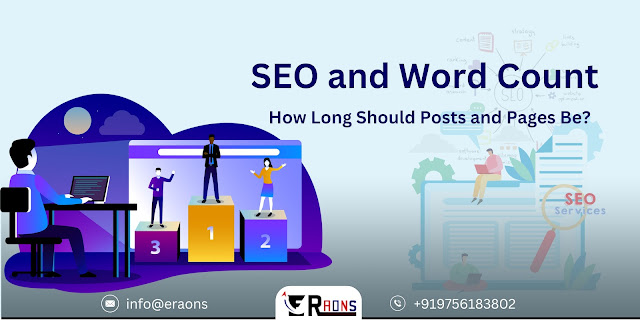CRM and CMS Integration- How They Differ? | Best Web Development Service in Dehradun-Eraons
In today's digital age, where businesses rely heavily on data and customer interactions, having the right tools in place is crucial for success. Two such tools that play a significant role in managing data and content are Customer Relationship Management (CRM) and Content Management System (CMS). While they both deal with data and content, they serve distinct purposes. In this article, we'll explore the differences between CRM and CMS and how integrating them can benefit your business.
Understanding CRM and CMS - Best Web Development Service in Dehradun
CRM (Customer Relationship Management):
A CRM system is designed to manage and analyze customer interactions throughout their journey with your business. It helps you track customer data, interactions, and transactions. The primary goal of CRM is to enhance customer relationships, improve customer service, and drive sales growth. CRM systems are commonly used by sales, marketing, and customer service teams to streamline their processes.
CMS (Content Management System)
A CMS, on the other hand, is focused on content creation, management, and delivery. It allows users to create, edit, and organize digital content, such as text, images, videos, and documents. CMS systems are primarily used for website and digital content management, making it easier for non-technical users to maintain and update a website.
Now, let's delve into the key differences between CRM and CMS:
Purpose:
CRM: The primary purpose of a CRM system is to manage customer data and interactions. It helps businesses build and maintain strong relationships with customers, streamline sales and marketing efforts, and improve customer service.
CMS: A CMS, on the other hand, is designed to manage digital content, typically for websites. It enables easy content creation and maintenance, making it a valuable tool for content publishers and website administrators.
Data vs. Content:
CRM: CRM systems focus on customer data, including contact information, purchase history, communication history, and lead management. The data is organized to help businesses understand their customers better and provide personalized experiences.
CMS: CMS systems deal with content, including text, images, videos, and other digital assets. They help users manage and present content in an organized and visually appealing manner on websites or other digital platforms.
User Base:
CRM: CRM systems are primarily used by sales, marketing, and customer service teams. They provide these teams with tools to manage leads, track customer interactions, and monitor the sales pipeline.
CMS: CMS platforms are used by web developers, content creators, and website administrators. They enable these users to design, create, and update website content without the need for extensive coding skills.
Integration:
CRM: CRM systems often integrate with various business tools, such as email marketing platforms, sales automation software, and customer support systems. These integrations enhance the capabilities of the CRM and provide a more comprehensive view of customer interactions.
CMS: CMS platforms can integrate with e-commerce systems, marketing automation tools, and other platforms to enhance website functionality. However, their primary focus is on content management.
Benefits of Integrating CRM and CMS:
While CRM and CMS serve different purposes, integrating them can yield significant benefits for businesses, especially those focused on digital marketing and e-commerce. Here are some advantages of CRM and CMS integration:
1. Unified Customer Data:
Integrating CRM and CMS allows you to centralize customer data and content management. This unified data can provide a comprehensive view of customer behavior, interactions, and content preferences.
2. Personalization:
With access to a wealth of customer data, you can create highly personalized content and marketing campaigns. A CRM system can segment customers based on their interactions, and a CMS can deliver tailored content to different customer groups.
3. Streamlined Marketing:
Integrating CRM and CMS can streamline marketing efforts. You can use CRM data to trigger automated marketing campaigns through your CMS, ensuring that the right content reaches the right customers at the right time.
4. Improved Sales:
Sales teams can benefit from integrated systems by accessing customer data and using it to tailor sales pitches. CRM data can help sales representatives understand customer needs and preferences, leading to more effective sales strategies.
5. Enhanced Customer Support:
Integrating CRM with your website's CMS can provide customer support teams with access to customer data and history. This enables more efficient issue resolution and improved customer service.
Choosing the Right Integration:
To integrate your CRM and CMS effectively, it's essential to choose the right tools and services. If you're looking for the best web development service in Dehradun, consider partnering with experts in custom web application development services. They can help you select, implement, and customize the CRM and CMS platforms that align with your business goals.
In conclusion, while CRM and CMS serve distinct purposes, integrating them can lead to a seamless flow of data, content, and customer insights. This integration is especially valuable for businesses looking to provide personalized experiences, streamline marketing and sales efforts, and enhance customer support. To make the most of this integration, consider working with experienced professionals in software and web application development to ensure a smooth and effective implementation.
Also Read: How to Boost Posts on Meta Business Suite Blog on Facebook






Comments
Post a Comment